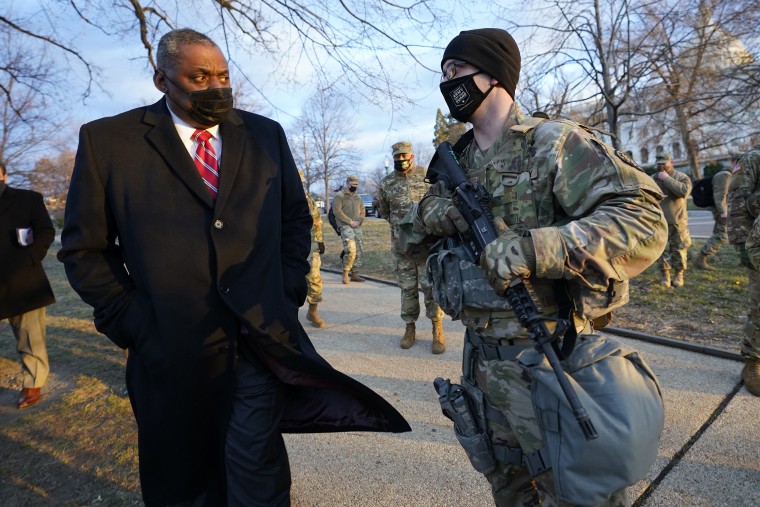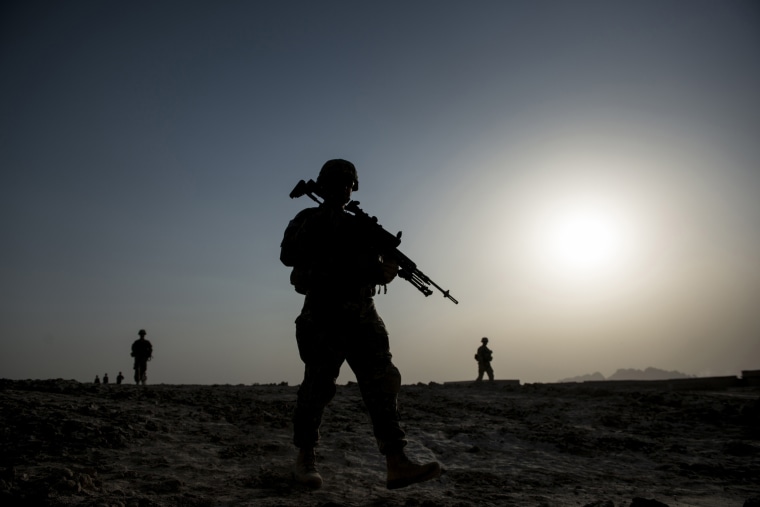WASHINGTON — Defense Secretary Lloyd Austin on Friday ordered new steps to tackle the threat posed by extremism in the ranks of the military, including updated screening questionnaires for recruits, a review of the department’s definition of extremism and efforts to prevent veterans from being drawn into violent movements.
The move follows a 60-day stand-down across the armed services that Austin ordered to allow commanders and troops in every unit to discuss how to confront the problem of white supremacist or other extremist ideology within the military. The Jan. 6 assault on the U.S. Capitol by supporters of former President Donald Trump thrust the issue into the spotlight, as some of the mob were former or current members of the military with links to ultra-rightwing groups.
In a memo Friday to top officials and commanders, Austin said the department was still reviewing the results of the stand-down but he had decided to move ahead with “several immediate steps.”
Under Austin’s instruction, the Pentagon’s top lawyer and other officials will review and update the department’s definition of “prohibited extremist activities” for all service members. Critics have said the Pentagon needs to take into account how extremism has evolved in the digital era, and how some adherents engage in more loosely formed networks.
The secretary also called for updated screening questionnaires for potential recruits to gather information about current or previous extremist behavior ”to ensure that only the best qualified recruits are selected for the services,” according to the memo.
The questionnaires, which would be standardized across the armed forces, would also clarify any “demonstrably false answers” that could later hold a service member accountable and form the basis “for punitive action for fraudulent enlistment,” it said.
The secretary ordered the department to provide training to troops preparing to retire to make them aware they could be targets for recruitment by extremist groups and to work with federal agencies to enable veterans the chance “to report any potential contact with an extremist group should they choose to,” the memo said.

Experts say the Department of Veterans Affairs, not the Pentagon, is the key agency when it comes to preventing or tracking extremism among veterans.
Austin also commissioned a Pentagon study of extremism in the force that would seek to gain a better understanding of “the scope of the problem.”
In his memo, Austin said a “countering extremism working group” would oversee the new measures and look at further steps to confront the problem, including possible changes to the military’s legal code, how to track potentially concerning behavior by troops, screening social media or other publicly available data for security background checks, and other reforms.
"The vast majority of those who serve in uniform and their civilian colleagues do so with great honor and integrity, but any extremist behavior in the force can have an outsized impact," Austin wrote in the memo.
Pentagon press secretary John Kirby told reporters that the defense secretary learned during the stand-down that service members were eager for clearer guidelines on the whole issue.
"One consistent thing he heard is the force wants better guidance," Kirby said.
Kirby said the new working group will weigh whether membership in some militant groups would be prohibited.
Under current regulations, a service member can belong to an extremist group as long as they do not actively raise money for or engage in another activity with the organization.
Kirby said the effort launched by Austin was not aimed at curtailing free speech or targeting anyone for their religious beliefs.
”This is not about being the thought police,“ Kirby said. “It's about the behavior and the conduct that is inspired by or influenced by this kind of ideology.”
Kirby added, “Obviously, without a question, we would want and expect that anybody who raises that right hand and takes that oath, and joins the military ... that they are going to live by that oath.”
